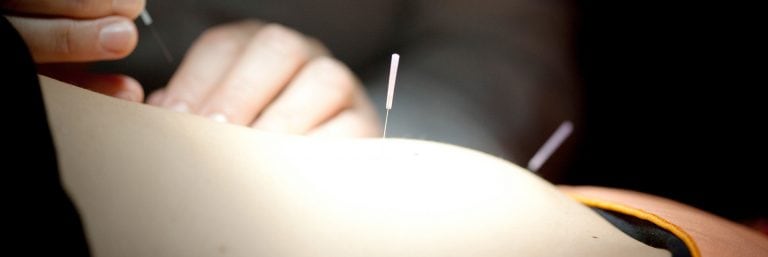Applied kinesiology
Applied kinesiology (AK) was founded by the American doctor of chiropractic medicine George Goodheart, who discovered in the 1960s that the strength of a muscle can be changed by merely touching therapeutically relevant points on the body. Based on this discovery, Goodheart developed a standardised muscle test, the purpose of which is to provide information on how the body reacts to positive as well as negative stress.
AK is particularly suited for the diagnosis of symptoms related to the musculoskeletal system. However, it also provides a simple option for the diagnosis of allergies, intoxication, and many other conditions (see ‘Special indications’).
Over the years, AK has developed into a holistic system for diagnosis and treatment which examines health in terms of the “Triad of Health” (see figure). The triad can be viewed as a triangle with equal sides representing “structure”, “chemistry” and “mental state”.
AK thus improves the options for every form of medical activity.
Unlike other forms of kinesiology, applied kinesiology (AK) is only practiced by qualified medical practitioners and requires many years of additional training, which also concludes with examinations.
AK is based on the challenge. Challenge refers to the provocation of the body for diagnostic purposes by means of structural, chemical or mental stimulation. When a patient is exposed to a test stimulation of this nature and there is a change in muscle strength, this is termed a positive challenge.
A change in challenge is called therapy localisation. This involves the patient placing a finger over the potentially abnormal region. If the conditions in this location are abnormal, the reaction of the muscles will be different.
This therapy localisation process indicates to the therapist where the abnormality is located and the direction in which treatment needs to be performed.
Special indications:
- Orthopaedics/neurology
- Spinal symptoms
- Problems with vertebral disks
- Headaches/migraines
- Sports injuries
- Gynaecology
- Hormonal problems
- General medicine
- Allergies, food intolerances
- Intoxication with heavy metals, pesticides, etc.
- Rheumatoid conditions
- Skin disorders
- Deficiencies



